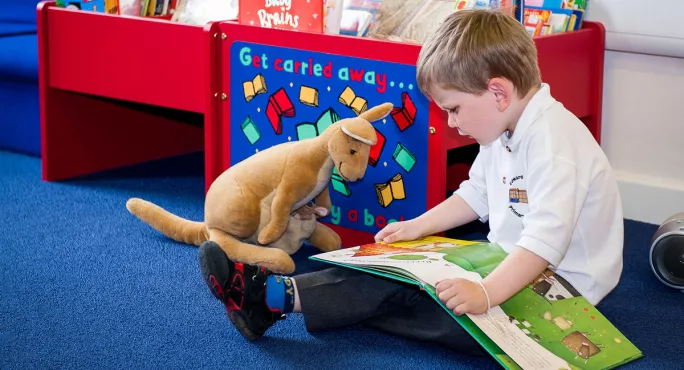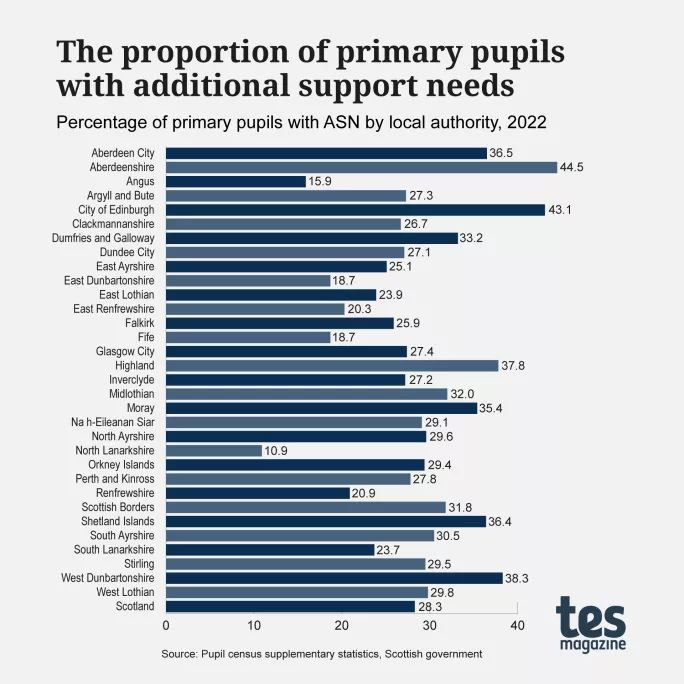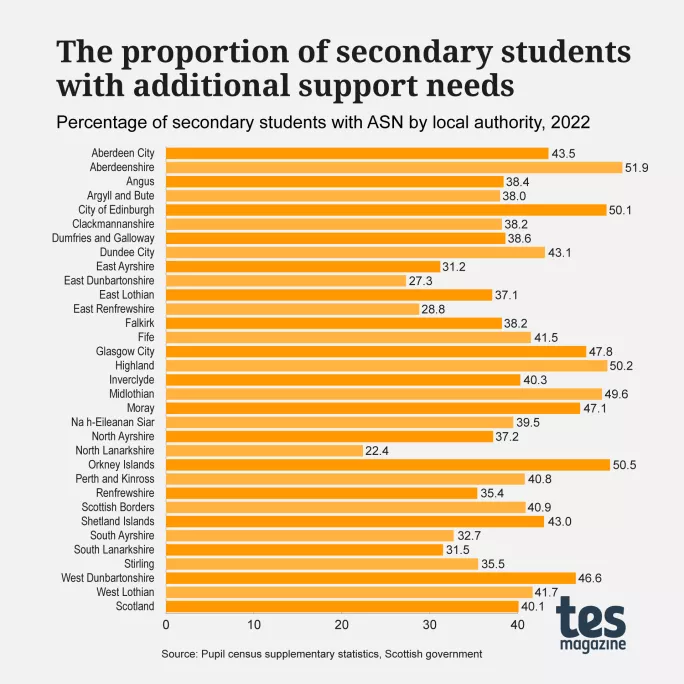- Home
- News
- Specialist Sector
- Loss of ASN teachers ‘extremely challenging’ for schools
Loss of ASN teachers ‘extremely challenging’ for schools

The drop in specialist additional support needs teachers is going to make it “extremely challenging” to meet the needs of pupils with ASN, specialist education providers have warned.
Statistics published this week show the number of ASN teachers falling as the number of ASN pupils reached a record high.
Data highlighted by Tes Scotland this week (see the graphs below) shows that the proportion of pupils with ASN can vary markedly by council area. In four local authorities, more than half of secondary students have ASN.
- ASN data: How many pupils in your area have additional support needs?
- ASN tribunals: Legal insight for teachers and school leaders
- Inclusion: How to help ASN pupils by making small changes to classrooms
- Interview: “We know how to make inclusion work - so let’s do it”
- Opinion: ASN pupils must no longer be seen as a “costly afterthought”
The number of ASN pupils in Scotland has increased from 118,011 in 2012 to a record 241,639 in 2022, or 34.2 per cent of all pupils.
However, between 2012 and 2022, the number of ASN teachers decreased by 546, from 3,389 to 2,843.
This means that there was one ASN teacher for every 35 pupils with ASN in 2012 but by 2022 there was only one ASN teacher for every 85 pupils with ASN.

A spokesperson for the Scottish Children’s Services Coalition (SCSC), which campaigns to improve services for vulnerable children and young people, said: “It is vital that those with ASN get the care and support they need. This is also key if we are to genuinely close the educational attainment gap, as we know that those with ASN are disproportionately drawn from poorer neighbourhoods.
“With cuts in support, including in the number of specialist teachers, it is going to be extremely challenging to reduce the current inequalities faced by those with ASN.”
The drop in specialist ASN support
The SCSC spokesperson added: “While we also support the presumption of mainstreaming, which means that all children and young people are educated in a mainstream educational environment unless exceptional circumstances apply, it is clearly difficult to see how this is functioning properly given the fall in specialist support and increase in the number of those with ASN.
“The Scottish government and local authorities need to work together to provide the necessary resourcing to address the needs of those children and young people with ASN, who represent some of the most vulnerable individuals in our society.”

A spokesperson for local authorities’ body Cosla said: “Ahead of the Scottish Budget 2023-24, Cosla set out that councils across Scotland were facing £600 million of cost pressures over the next year as a result of a number of factors including demand - and we’ve seen substantial increases in the number of children and young people with additional support needs.
“In November 2021 Angela Morgan’s independent review of additional support, which was commissioned by Cosla and the Scottish government, was published. Through the Additional Support for Learning Project Board, co-chaired by the Scottish government and Cosla, we are working with partners across the education system to implement the Morgan review’s recommendations.”
Education secretary Shirley-Anne Somerville said: “Local authorities are responsible for identifying and meeting the additional support needs of their pupils.
“All teachers are responsible for the provision of support to pupils with additional support needs, rather than those teachers whose role is specifically related to additional support for learning.
“In 2022 the number of teachers in special schools increased by 93 to 2,097 and in 2021 1,036 extra pupil support assistants were recruited, exceeding our Programme for Government commitment.”
Ms Somerville added: “We will continue to provide councils with an additional £15 million each year to help them respond to the individual additional support needs of children and young people.
“This is in addition to £16 million each year to provide direct counselling support to children and young people, in recognition of the need for mental health and wellbeing support.”
You need a Tes subscription to read this article
Subscribe now to read this article and get other subscriber-only content:
- Unlimited access to all Tes magazine content
- Exclusive subscriber-only stories
- Award-winning email newsletters
Already a subscriber? Log in
You need a subscription to read this article
Subscribe now to read this article and get other subscriber-only content, including:
- Unlimited access to all Tes magazine content
- Exclusive subscriber-only stories
- Award-winning email newsletters
topics in this article



